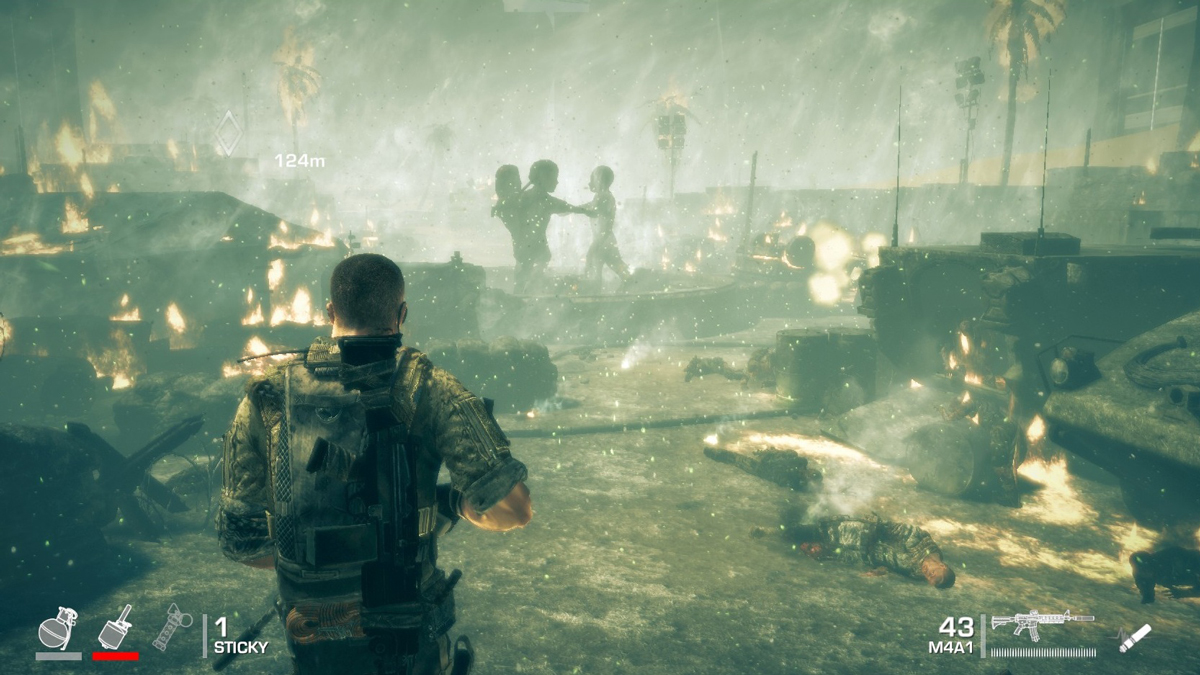Video Game Retrospective: Spec Ops: The Line
 supplied
suppliedSpec Ops: The Line
Published by: 2K Games
Developed by: Yager Development
Released: June 26, 2012
https://www.2k.com/games/spec-ops-the-line
It is incredible how much of deconstructionist art tends to exploit oversaturated sources from popular media and adapts them into truly memorable works. Alan Moore and Dave Gibbons redesigned C-grade superheroes from a defunct publisher and translated them into Watchmen, Clint Eastwood retired the legacy of his “lone gunslinger” character in Unforgiven and, in a similar spirit, Yager Development had released Spec Ops: The Line, rebooted from an obscure tactical shooter franchise from the 90s, and transformed it into a powerful critical statement upon the nature of violence and video games.
Adapted from the book Heart of Darkness by Joseph Conrad, Spec Ops: The Line follows the story of Captain Martin Walker, an elite Delta Force soldier, leading a three-man team into a sandstorm-ravaged Dubai. Reporting on a distress signal from the famed Colonel John Konrad and his volunteer battalion who were assisting with relief efforts, they arrive to discover the American soldiers committing atrocities against the civilian population and the total breakdown of civil order. Caught in the violent crossfire, Walker and team decide to fight their way deep into Dubai to stop Konrad and end the bloodshed.
By the time of its release in 2012, the modern military shooter genre had debased itself into unironic military spectacle, imperialistic jingoism, and sensational war violence. Its direct contemporary, Call of Duty: Modern Warfare 3, shares its name with (still) one of the most successful video game franchise in history and is oft regarded as blatantly indulging in the spectacle of modern war and the pleasures of simulated killing. Its violence was virtual, self-indulgent, and ostensibly blameless on the part of the player. The extent of violence in contemporary shooter games escalated and remained relatively unchallenged and unquestioned by 2012.
Spec Ops: The Line opted to criticize that modern military shooter genre and fully involve and confront the player upon the nature of morality, war, and the nature of (video game) violence. The player-character, Capt. Walker, suffers hallucinations and slowly devolves into bloodthirst and insanity as the result of his actions, the most infamous of which being where Walker (the player) is forced to use white phosphorus, inadvertently killing innocent civilians and walking amongst the charred corpses of men, women, and children. By the end of the scene, the psychological distance made between the player and the game becomes frighteningly and uncomfortably close, even sometimes breaking the fourth wall with in-game messages like “The U.S. military does not condone the killing of unarmed combatants. But this isn’t real, so why should you care?”
Despite its commercial failure upon release, The Line received critical acclaim for its thematic complexity and narrative, and remains an important reference in the realm of video game discussions, revealing the complicity of violence both in war and in video games. While sharing the same influence with the similar 1979 film Apocalypse Now, Spec Ops: The Line became an entirely different beast with its feet firmly planted in the video game medium. In retrospect, The Line may not have irreversibly changed the genre, but it unsettled the ground from which shooter games once stood upon, and made us all question the violence that we freely enact and enable in video games.




